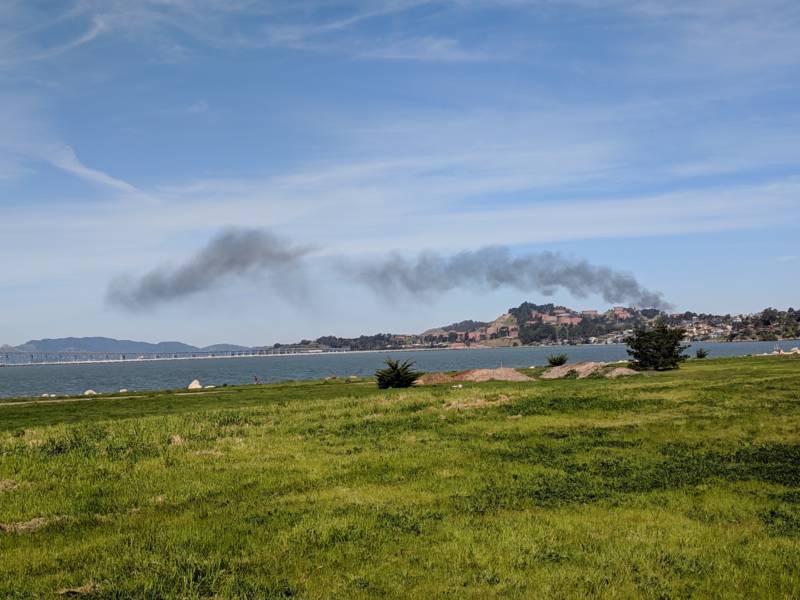The number of flaring incidents in 2018 at Chevron's Richmond refinery was at its highest level in 12 years, according to data the Bay Area Air Quality Management District released Monday at a board of directors committee meeting.
The refinery experienced nine flaring events last year, more than any other refinery in the Bay Area. That's the highest number of such incidents since 2006, when the Chevron refinery experienced 21 flaring events.
The Tesoro refinery in Pacheco experienced five flaring incidents last year, Valero's Benicia refinery conducted four, Shell in Martinez had three and Phillips 66 in Rodeo had two, according to the air district.
The jump, which started in the last eight months, is connected to the start up of a new hydrogen plant that recently began operating at the facility, according to John Gioia, who represents the area of the refinery on the Contra Costa County Board of Supervisors and sits on the air district's board of directors.
"All the sudden we saw this spike," Gioia said in an interview. "There are some issues related to the new hydrogen plant and how it is integrated with the existing refinery."

